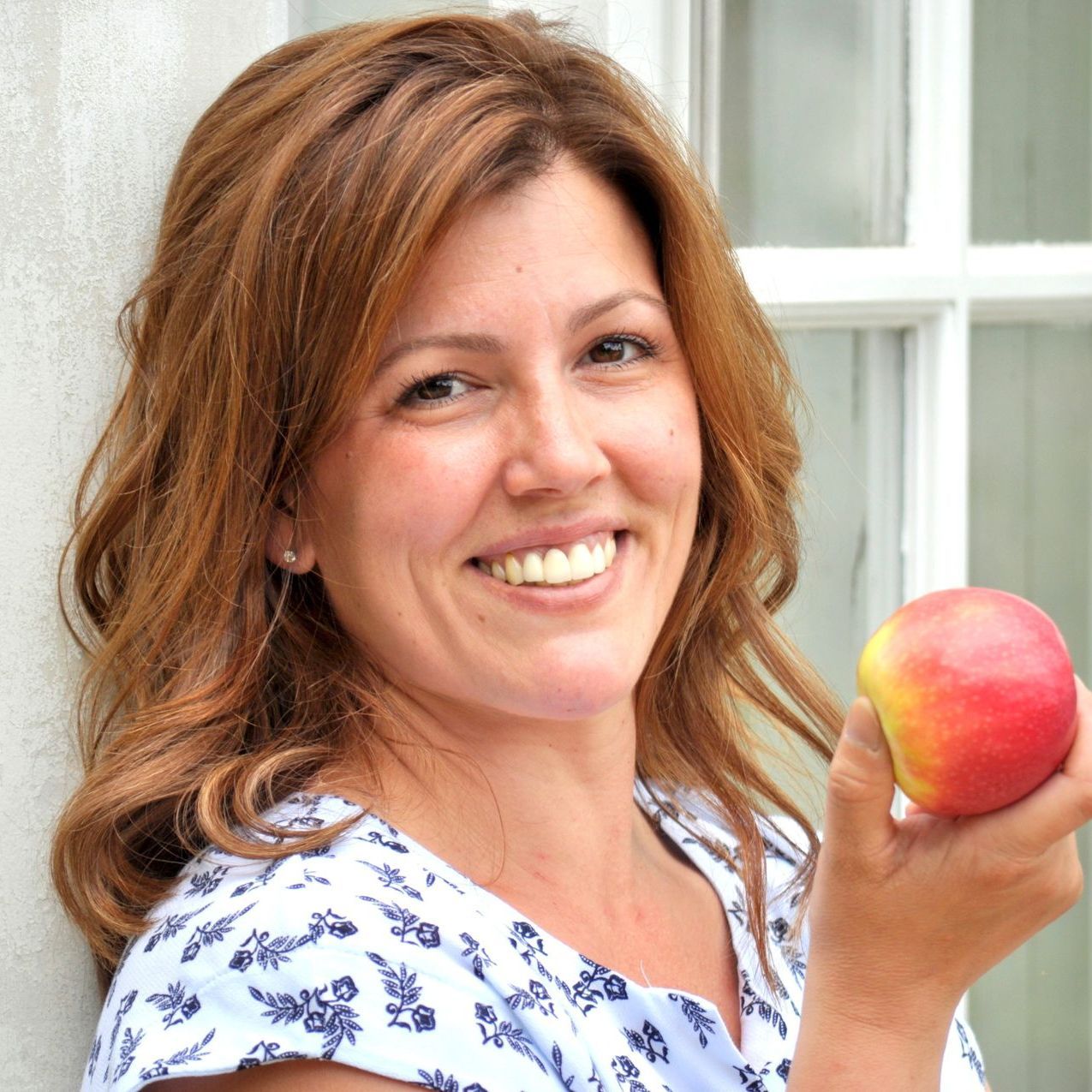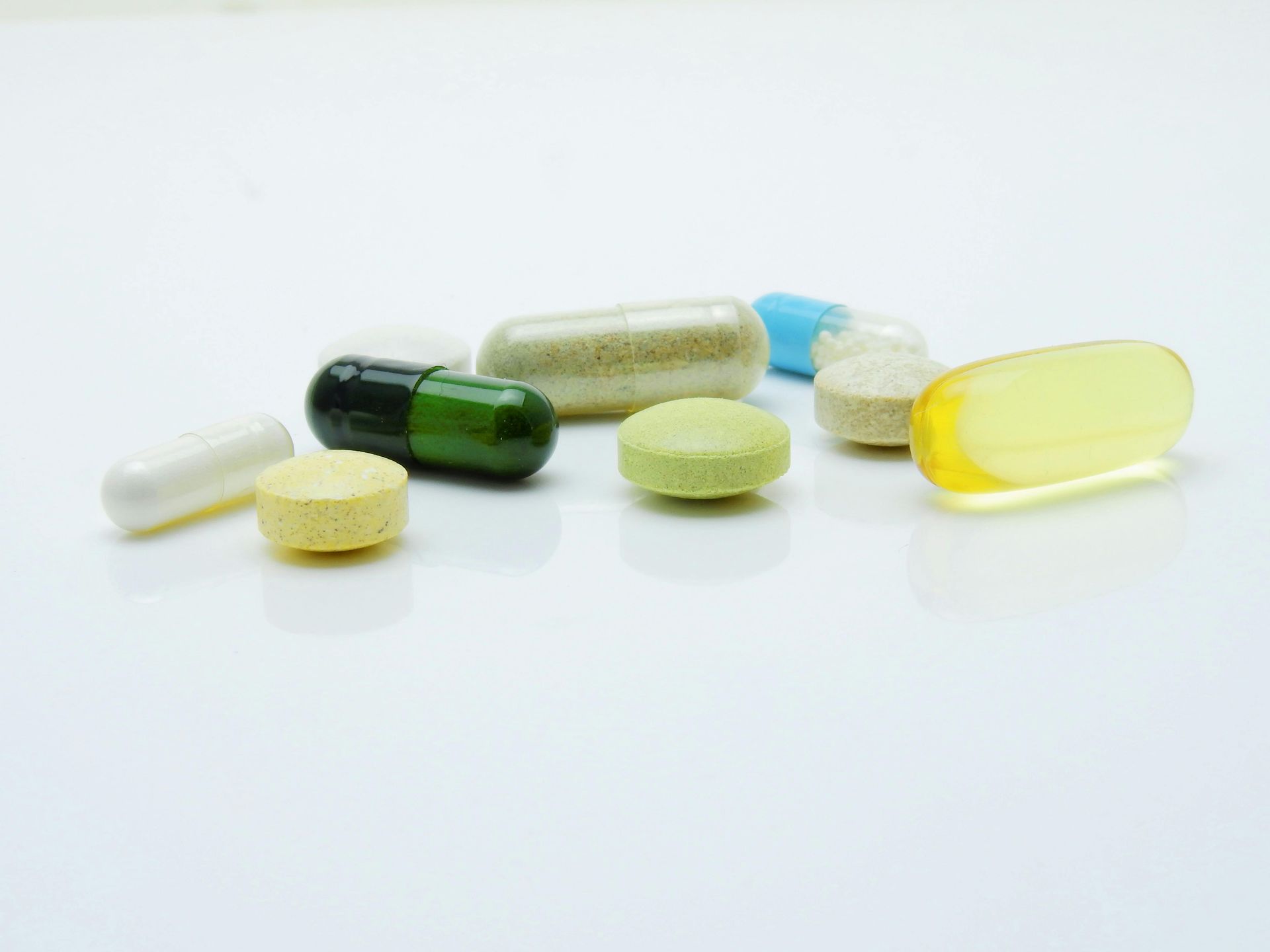Building a Fertility Diet Meal Plan

We know that nutrition is one of the primary ingredients for bolstering both male and female fertility. Still, the internet is absolutely drowning in confusing and often contradictory information about what to eat for fertility. For more than 20 years, the
Pulling Down the Moon team has worked closely with doctors and delved deeply into scientific research about diet and fertility. This gives us the unique ability to separate nutritional wisdom from nonsense, so our clients can build a fertility diet meal plan that will help them in their efforts to get pregnant.
What is a Fertility Diet?
A fertility diet isn’t so much a “diet” hyped on your favorite morning news infotainment show. Instead, it’s a scientifically-backed way of eating healthy foods that contain the nutrients your body needs for healthy fertility, whether you are a man or a woman. It also minimizes foods, chemicals, and contaminants that can damage fertility. Eating for fertility includes a lot of great, nutritionally-dense foods that make you feel great overall: organic fruits and vegetables, lean protein sources, nuts, healthy fats, and dairy. It’s about balance, not extremes. Eating for fertility is based on solid nutritional research. It helps you balance your hormones, achieve a healthy weight, and avoid potential health complications that could negatively impact your fertility. So, if you’re searching for the best diet for getting pregnant, there are no gimmicks here—just solid, tasty science.
Fertility Diet Meal Plan: The Relationship Between Nutrition and Fertility
Speaking of the science of fertility and nutrition, there is a lot of it.
As regards female fertility, one large, interdisciplinary study noted a strong correlation between poor nutrition and being overweight inhibiting healthy ovarian function.¹ The same study found that being underweight and under-nourished also damaged fertility. Reliance on overly processed foods with high amounts of sugar, chemicals, and unhealthy fats, yet lacking in nutrients threw fertility hormones out of sync. Obesity and insulin resistance also seem to impact chronic conditions like polycystic ovary syndrome (PCOS), which is known to hurt female fertility. A Harvard study showed that women who ate a fertility diet rich in vegetable proteins, healthy fats, complex carbohydrates with plenty of fiber, iron, the right blend of vitamins and minerals, and, interestingly, more high-fat dairy products than low-fat dairy products had better fertility outcomes generally.²
Nutrition affects male fertility also. Another wide-ranging study analyzing the existing scientific literature found that nutrition significantly impacts sperm attributes, bioenergetics, and function.³ For men, diets with strong levels of omega-3 fatty acids and other essential nutrients prevented oxidative damage and improved mitochondrial function of sperm cells, boosting fertility. At the same time, poor nutrition and being either under or overweight have negative impacts on male fertility.

With this science in hand, Pulling Down the Moon has developed an entire 12-week fertility nutrition program, run by a licensed fertility nutritionist who understands the science behind fertility and nutrition. We designed this program to boost your nutrition, detox your body from harmful environmental toxins, and set you up for fertility success. In addition, we know that many individual factors can impact your ability to absorb nutrients, and we can work together to create a comprehensive nutritional plan to help you eat for fertility every day, getting the nutrients your body needs to bring that dream to reality.
Key Nutrients for a Fertility Diet
Based on all the latest, most rigorous scientific research, essential nutrients loom large when eating for fertility. Women and men both require a healthy amount of high-quality macronutrients and micronutrients to balance their bodies’ ecosystems for optimum fertility.
Macronutrients and Their Role in Fertility
Humans need protein, fats, and carbohydrates to live and function, and the right types and amounts of these macronutrients can improve fertility:
Protein
The latest research says that vegetable protein sources like nuts, lentils, and beans have a more positive impact on fertility than animal protein sources.⁴ Meats can, however, have beneficial levels of protein, vitamin B-12, zinc, and iron, all of which are crucial for fertility and healthy pregnancy. If you choose to eat meat, select lean cuts of chicken, turkey, pork, or beef with a low saturated fat content. Research also showed better fertility outcomes for women who replaced red meat with fish a couple of times a week.⁴ In addition to being a good source of lean protein, some fish have great levels of beneficial omega-3 fatty acids, which are beneficial for male fertility as well as a healthy pregnancy.⁵ Be careful, however, to avoid fish that are known to have high mercury content (Marlin, king mackerel, shark, swordfish, orange roughy, tilefish, and bigeye tuna).⁶ Aside from lean meats and low-mercury fish sources, eggs are also an excellent source of protein and micronutrients needed for fertility and healthy fetal development.
Fats
We previewed why avoiding saturated animal fats is a good idea. Trans fats, often found in highly processed, fried foods, are also bad for fertility and overall health generally, with research showing that they cause insulin resistance and inflammation that can damage fertility efforts.⁷ But high-quality, plant-based monounsaturated fats in moderation are good for fertility. Avocados, nuts, olive oil, and grape seed oil are all excellent sources of monounsaturated fats that have demonstrated anti-inflammatory properties, which help improve fertility.⁸
Carbohydrates
Increase the amount of natural, “slow-burning” complex carbs and reduce the amount of highly processed, refined carbs in your diet. So feel free to load your plate with fiber- and nutrient-loaded fruits and vegetables, whole grains (like buckwheat, quinoa, and steel-cut oats), and legumes. Try to avoid white bread, pastries, white rice, cakes, and cookies. Refined carbs spike blood sugar and increase insulin resistance, which multiple studies say throws ovulation and hormones off balance.⁹ Complex carbs, on the other hand, are full of fiber that moderates blood sugar reactions while also containing important micronutrients like vitamins and minerals.
Micronutrients Essential for Fertility
Micronutrients are the vitamins, minerals, and other important chemical components of food that benefit our organs, glands, blood, brain, and reproductive systems—every aspect of our physical and mental health. The important thing is to get the right balance of these nutrients: no more, no less. And that can be tricky. In many cases, even the best fertility diets still lack the right levels of essential nutrients. This is why your fertility nutritionist may recommend supplements to cover those gaps. Some of the most important micronutrients for fertility¹⁰ (and good food sources) include:
- Iron (spinach, legumes, lean red meat, pumpkin seeds, quinoa, turkey, broccoli, tofu¹¹, fish, and dark chocolate)
- Zinc (lean red meat, legumes, pumpkin seeds, hemp seeds, nuts, dairy, eggs, whole grains, potatoes, sweet potatoes)
- Iodine (seaweed, cod, dairy, tuna, eggs, iodized salt, prunes, Lima beans)
- Calcium (cheese, yogurt, sesame seeds, poppy seeds, celery seeds, chia seeds, canned salmon, sardines, legumes, almonds, whey protein, leafy green vegetables, rhubarb, amaranth)
- Magnesium (dark chocolate, nuts, avocados, legumes, tofu, whole grains, flax seeds, pumpkin seeds, chia seeds, buckwheat, quinoa, salmon, bananas)
- Selenium (Brazil nuts, fish, lean pork, lean beef, turkey, chicken, cottage cheese, eggs, sunflower seeds, oatmeal)
- Folate & Folic Acid or Vitamin B9 (Folic acid comes in supplement form. You can get folate from foods like legumes, asparagus, eggs, leafy greens, beets, citrus fruits, Brussels sprouts, broccoli, nuts)
- Omega-3 Fatty Acids (mackerel, salmon, cod liver oil, herring, sardines, caviar, anchovies, flax seeds, chia seeds, walnuts, enriched eggs, enriched dairy products, hemp seeds)
- Niacin - Vitamin B3 (liver, chicken, tuna, turkey, salmon, anchovies, pork, lean beef, peanuts, avocados, brown rice, whole wheat, mushrooms)
- Vitamin B6 (milk, ricotta cheese, salmon, yellowfin and albacore tuna, eggs, beef, carrots, spinach, sweet potatoes, green peas, bananas)
- Vitamin C (Kakadu plums, acerola cherries, rose hips, chili peppers, guava, sweet yellow peppers, black currants, cantaloupe, parsley, kale, kiwi fruit, broccoli, citrus fruits)
- Vitamin D (fatty fish, herring, sardines, cod liver oil, canned tuna, eggs, mushrooms, fortified dairy, fortified orange juice)
- Vitamin E (wheat germ oil, sunflower seeds, almonds, hazelnuts, pine nuts, peanuts, Mamey Sapote, avocados, red sweet peppers, turnip greens)
- Glutathione (lean beef, fish, poultry, broccoli, Brussels sprouts, watercress, mustard greens, asparagus, kale, garlic, onions, shallots, strawberries, watermelon, citrus fruits, papayas, kiwi fruit, bell peppers)
Building Your Fertility Diet Meal Plan

Your fertility diet meal plan should include a wide variety of healthy, nutrient-dense foods. Variety is key because some foods, like fish and red meat, though high in nutrients, can also contain problematic elements (saturated fats in red meat and mercury in seafood). Switching out the foods you eat each week helps you get the right mix and balance of nutrients while lowering the risk of contaminants and inflammatory elements. The good news is that there are so many different kinds of fruits, vegetables, vegetable- and lean animal proteins, nuts, seeds, etc. that you won’t run out of delicious things to eat.
1. Planning Your Meals
You should choose healthy foods that you like and enjoy, and do it with a certain balance in mind. Plan to fill half of your plate with fruits and vegetables, and a quarter of your plate with complex carbohydrates like whole grains or seeds like brown rice, quinoa, or amaranth. The other quarter of your plate should include a lean protein source.
2. Foods to Include
You can use the lists of food and nutrients above to find and create recipes and meal plans that will contain a healthy balance of fertility-boosting nutrients each day. If you suffer from any food allergies, sensitivities, or a condition like Celiac disease, contact our fertility nutritionist for assistance finding nutritious alternatives to those foods, or for supplements that can help you get the nutrients you need while avoiding foods that cause you problems.
3. Foods to Avoid
People struggling with infertility or any conditions that contribute to fertility problems should try to avoid processed, high-sugar foods that can cause blood sugar spikes and insulin resistance. It’s also a good idea to avoid alcohol, caffeine, and processed soy foods that you might find in protein shakes and bars. Whole soy products such as tempeh, edamame, miso, and tofu are fine in moderation.
Lifestyle Factors That Complement a Fertility Diet
In addition to nutrition, many other lifestyle factors can impact fertility. High levels of stress are known to interfere with hormone levels important for becoming pregnant. Lack of exercise and poor sleep quality and quantity are also problematic. Smoking and alcohol use also hurt fertility. Enhancing your chances of becoming pregnant involves many factors, some of which you can control, and others that are harder to control. Creating a healthy reproductive environment means bringing your lifestyle into a healthy balance where your body gets the nutrients, rest, and relaxation it needs while detoxifying from dietary and environmental contaminants.
Additional Support for Your Fertility Journey
Please reach out to us to schedule an appointment for any of our holistic fertility services. Our 12-week fertility nutrition course is especially helpful for overhauling your diet and creating affordable, nutritious meal plans that support your fertility! If you are concerned about pricing, we do take many forms of insurance. Pulling Down the Moon has created a supportive, compassionate, experienced community of holistic fertility experts in Chicago and Highland Park who are on your team as you go through your journey to have a baby.
References
¹Silvestris, E., Lovero, D., & Palmirotta, R. (2019). Nutrition and Female Fertility: An Interdependent Correlation. Frontiers in Endocrinology, 10(346). https://doi.org/10.3389/fendo.2019.00346
²Changes in diet and lifestyle may help prevent infertility. (2007, November 1). Harvard Gazette. https://news.harvard.edu/gazette/story/2007/11/changes-in-diet-and-lifestyle-may-help-prevent-infertility/
³Almujaydil, M. S. (2023). The Role of Dietary Nutrients in Male Infertility: A Review. Life, 13(2), 519. https://doi.org/10.3390/life13020519
⁴Skoracka, K., Ratajczak, A. E., Rychter, A. M., Dobrowolska, A., & Krela-Kaźmierczak, I. (2021). Female Fertility and the Nutritional Approach: The Most Essential Aspects. Advances in Nutrition, 12(6). https://doi.org/10.1093/advances/nmab068
⁵Chiu, Y.-H., Chavarro, J. E., & Souter, I. (2018). Diet and female fertility: doctor, what should I eat? Fertility and Sterility, 110(4), 560–569. https://doi.org/10.1016/j.fertnstert.2018.05.027
⁶Center for Food Safety and Applied Nutrition. (2019). Advice About Eating Fish. U.S. Food and Drug Administration. https://www.fda.gov/food/consumers/advice-about-eating-fish
⁷Angelieri, C. T., Barros, C. R., Siqueira-Catania, A., & Ferreira, S. R. G. (2012). Trans fatty acid intake is associated with insulin sensitivity but independently of inflammation. Brazilian Journal of Medical and Biological Research, 45(7), 625–631. https://doi.org/10.1590/s0100-879x2012007500071
⁸Alesi, S., Villani, A., Mantzioris, E., Takele, W. W., Cowan, S., Moran, L. J., & Mousa, A. (2022). Anti-Inflammatory Diets in Fertility: An Evidence Review. Nutrients, 14(19), 3914. https://doi.org/10.3390/nu14193914
⁹Bendarska-Czerwińska, A., Zmarzły, N., Morawiec, E., Panfil, A., Bryś, K., Czarniecka, J., Ostenda, A., Dziobek, K., Sagan, D., Boroń, D., Michalski, P., Pallazo-Michalska, V., & Grabarek, B. O. (2023). Endocrine disorders and fertility and pregnancy: An update. Frontiers in Endocrinology, 13(970439). https://doi.org/10.3389/fendo.2022.970439
¹⁰Kapper, C., Oppelt, P., Ganhör, C., Ayberk Alp Gyunesh, Arbeithuber, B., Stelzl, P., & Rezk-Füreder, M. (2024). Minerals and the Menstrual Cycle: Impacts on Ovulation and Endometrial Health. Nutrients, 16(7), 1008–1008. https://doi.org/10.3390/nu16071008
¹¹Reed, K. E., Camargo, J., Hamilton-Reeves, J., Kurzer, M., & Messina, M. (2021). Neither soy nor isoflavone intake affects male reproductive hormones: An expanded and updated meta-analysis of clinical studies. Reproductive Toxicology, 100, 60–67. https://doi.org/10.1016/j.reprotox.2020.12.019
Meet Beth Heller
Beth Heller is a co-founder and co-director of Pulling Down the Moon, Inc., where she specializes in Integrative Care for Fertility (ICF). With a Master's Degree in Human Nutrition and Dietetics, she previously worked as a Nutrition Researcher on an NIH-funded study before discovering the powerful connection between mind and body through yoga. Beth's journey into yoga began in 1998, helping her regain her reproductive health, and she later delved into deeper practices, including meditation and breathwork. Despite experiencing the loss of a stillborn daughter, Beth found solace in yoga's ability to provide inner stability and hope. She co-founded Pulling Down the Moon and continued her personal fertility journey, eventually welcoming two sons. Beth's mission is to share the tools of yoga and traditional healing therapies with others facing fertility challenges, and she is an active member of relevant professional organizations while teaching yoga in the Chicago area.







